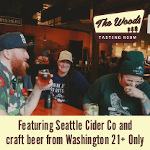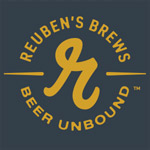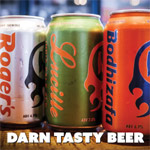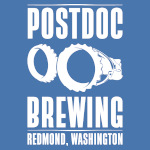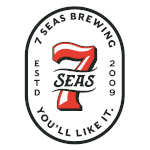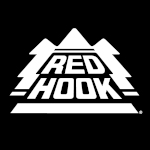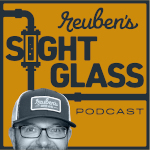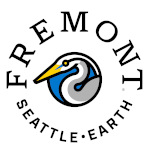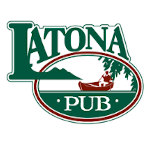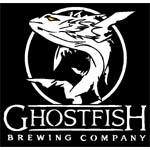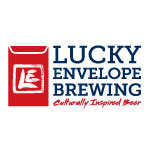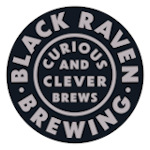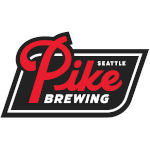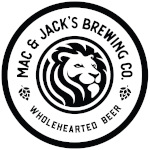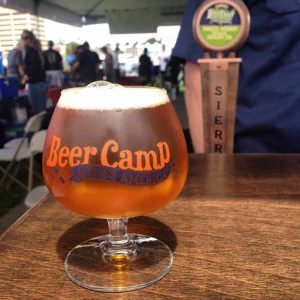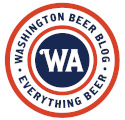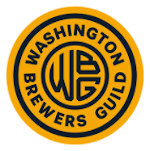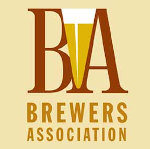On Saturday, June 11th, Sierra Nevada Brewing hosted the Beer Camp Across America Beer Festival at South Lake Union Park. The company hosts similar events in cities across the country. This year in Seattle, Tampa, Milwaukee, Boston, San Francisco, and Los Angeles. The Seattle version of Beer Camp was a fabulous festival with lots of great beer, some of it from breweries we don’t often see around Seattle.
The festivals are part of the larger, annual Beer Camp program, which sees teams of breweries from across the country collaborate to make special beers. The 2016 Beer Camp 12-packs are in stores now. See our previous story about Beer Camp.
I could blather on for hours about what a well-run festival it was, and how amazing it was to have a big beer festival like this in the heart of the city, at a centralized location where so many people could so easily access the event via public transportation. I could wax poetic about what a beautiful spot South Lake Union Park is for a festival like this. That wouldn’t be fair to those of you who didn’t attend, so I won’t do that.
Before the festival began, I was fortunate enough to sit down with Ken Grossman, the founder and owner of Sierra Nevada Brewing. He opened his brewery in 1981, when there was no such thing as a craft beer industry, so there are few people on earth who can match his understanding of the beer landscape in America today.
You probably won’t be surprised to hear that Ken Grossman is a very approachable, low key, down-to-earth kind of guy. Regardless of his net worth, he is a beer guy, after all. I didn’t record the conversation, so I won’t quote him in that manner. I will, however, share with you some of what he told me.
I asked him about how the world has changed in the 35 years since he started Sierra Nevada, with the advent of things like the Internet, cell phones and social media. I suppose you could add craft beer to that list. I was curious to hear his thoughts about how those changes influenced the growth of the craft beer industry.
Grossman pointed out something that I had not considered; all of these innovations helped beer drinkers become better educated, which in turn has fueled the industry. When he introduced the world to Sierra Nevada Brewing most beer drinkers didn’t know anything about beer.
As he put it, “People thought hops were a grain; they really had no idea what we were doing.”
Today, he said, beer drinkers are very knowledgeable by comparison. The more you know about beer, about the ingredients and how beer is made, the more you’ll appreciate good beer.
When Grossman started his brewery, he was a young man in his mid-20s. Opening a brewery was more than a leap of faith, it was like running blindly into the wilderness.
I asked him about that. Grossman was quick to point out that he was not alone in the wilderness.
He gave credit to Fritz Maytag (Anchor Brewing) and Jack McAuliffe (New Albion Brewing) for leading the way. Also, Grossman said something that surprised me.
“Everyone in the industry was supportive, including the guys at the big breweries. They offered help and were interested in what we were doing.”
The big guys? Helping? Hard to imagine.
I asked Grossman if he’d do it again. If he were 25 years old right now would he open a brewery?
“Knowing how much I loved beer and brewing, I think that I probably would,” he said.
He added that if he were starting a brewery today he’d focus on staying local or regional, and would not get involved in the race to become the next big, national craft beer brand. For any of you planning to open a brewery, that’s free advice from someone who knows a couple things.
This led into my next question. What do you think is the greatest challenge facing the craft beer industry today?
“Shelf space,” he said simply. “Grocery stores and retailers now have lots of different beers on the shelf, but I don’t think that will continue.”
Don’t freak out; recognize his point.
Grossman explained that a lot of retailers currently make room for a wide variety of beer, including beers that don’t move so well. He believes that they’ll go back to what they know: stocking only those items that move consistently. Grossman said that he thinks it will become more difficult for breweries to get their beer on the shelf, not only because there are more and more breweries competing for shelf space, but because retailers will stop looking at craft beer as a novelty, or a loss-leader, and will start to treat it like a commodity. That doesn’t mean grocery stores will no longer sell lots of craft beer, but they may streamline what they offer.
Seems logical.
It wasn’t a doomsday prediction, but a realistic look at the industry. I can’t help but agree with his assessment. Today, Seattle’s better grocery stores offer dizzying arrays of beer choices. Peruse the beer aisle and you’ll spot some beers that probably languish on the shelf for a long time before finding their way to the cash register. That’s not the way grocery stores treat most other products they sell.
Finally, I asked Grossman about collaboration. After all, the whole point of Beer Camp is to bring breweries together in the spirit of cooperation.
I expected some sort of altruistic answer about uniting the industry and fostering a sense of brotherhood. Instead, I got a much more practical answer.
“Working with other breweries makes us better,” Grossman said. “We feed off of their creativity.”

Sierra Nevada has never been short on creativity, but it’s easy to understand how the brew crew could grow a bit weary of making so much Pale Ale. Mingling ideas with smaller, more nimble breweries cannot be a bad thing.
And I think that’s fine. Sierra Nevada gives back way more than it takes. Instead of looking at other breweries as competition, Grossman still feels a kinship with his fellow brewers. It seems he still believes in the “rising tide lifts all boats” philosophy that for 30 years has help the industry grow. It’s a philosophy that many people fear is dying.
Sierra Nevada’s ship has come in, so to speak, but Grossman still seems to think that what’s good for one is good for all. Hence, a small portion of Sierra Nevada’s sizable purse is dedicated to things like Beer Camp. Sure, it’s a line item in a big marketing budget, but there is more than a bit of altruism involved.
Whatever they’re doing at Sierra Nevada Brewing, it is working. As big as Sierra Nevada is, nobody ever accuses the brewery of being inherently bad because of its size. Having met Ken Grossman, I have a better understanding of why. The man that many have dubbed “a craft beer billionaire” is still a certifiable beer fanatic.
After our chat was done and the festival was underway, Ken Grossman manned the taps at the Sierra Nevada booth, serving beer to festivalgoers, many of whom had no idea who he was.
Cheers to our sponsors, like…



